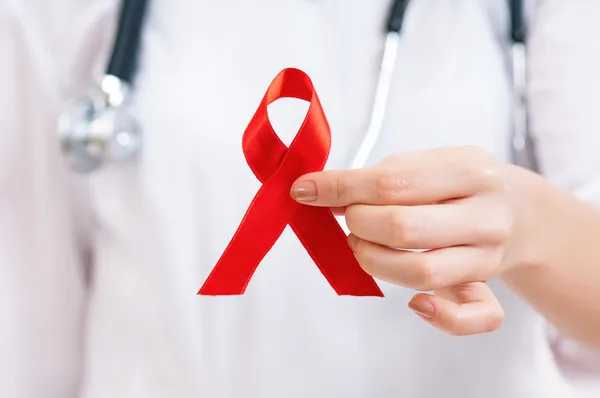Lung Cancer Therapy: Current Treatments and Innovations in Care
Lung cancer is one of the most common and serious types of cancer worldwide, but thanks to advancements in medical research and treatment options, there is hope for patients and their families. From traditional therapies to cutting-edge treatments, lung cancer therapy is evolving rapidly, providing new opportunities for effective care. This article will explore the current therapies used in the treatment of lung cancer and the latest innovations that could transform patient outcomes.
Lung cancer is one of the most common and serious types of cancer worldwide, but thanks to advancements in medical research and treatment options, there is hope for patients and their families. From traditional therapies to cutting-edge treatments, lung cancer therapy is evolving rapidly, providing new opportunities for effective care. This article will explore the current therapies used in the treatment of lung cancer and the latest innovations that could transform patient outcomes.

1. Understanding Lung Cancer
Lung cancer occurs when abnormal cells in the lungs grow uncontrollably, forming tumors. It is generally classified into two main types:
- Non-small cell lung cancer (NSCLC): The most common type, accounting for about 85% of all lung cancer cases.
- Small cell lung cancer (SCLC): A less common but more aggressive form of lung cancer.
Early-stage lung cancer often has no symptoms, making it harder to detect until it has progressed. As a result, treatment is often initiated at later stages, where the cancer may have spread to other parts of the body. However, thanks to advances in early detection and personalized treatment, more people are surviving lung cancer today than in the past.
2. Standard Lung Cancer Therapies
The treatment approach for lung cancer typically depends on the type of cancer, its stage, and the overall health of the patient. Here are the most common therapies used in lung cancer treatment:
A. Surgery
Surgery is typically used for early-stage lung cancer, especially when the tumor is confined to one part of the lung. The goal of surgery is to remove the cancerous tissue while preserving as much lung function as possible. Types of surgical procedures include:
- Lobectomy: Removal of a single lobe of the lung.
- Pneumonectomy: Removal of an entire lung.
- Wedge resection: Removal of a small part of the lung that contains the tumor.
Surgery may be combined with other treatments, such as chemotherapy or radiation, to reduce the risk of the cancer returning.
B. Radiation Therapy
Radiation therapy uses high-energy radiation to target and destroy cancer cells. This treatment is commonly used for patients who cannot undergo surgery or for those with tumors that are difficult to remove. It can also be used to shrink tumors before surgery or to relieve symptoms in advanced stages of cancer. Types of radiation therapies include:
- External beam radiation: Directed at the tumor from outside the body.
- Stereotactic body radiation therapy (SBRT): A highly focused radiation treatment used for small tumors that are hard to reach surgically.
C. Chemotherapy
Chemotherapy involves using drugs to kill or stop the growth of cancer cells. It is often used to treat advanced stages of lung cancer or when the cancer has spread. Chemotherapy can be given before surgery (neoadjuvant), after surgery (adjuvant), or as the primary treatment for advanced disease. Common chemotherapy drugs for lung cancer include:
- Cisplatin
- Carboplatin
- Paclitaxel
- Etoposide
Chemotherapy can have side effects like nausea, fatigue, and hair loss, but these effects can often be managed with supportive care.
3. Targeted Therapy: Precision Medicine for Lung Cancer
Targeted therapies are newer treatments that target specific genes or proteins involved in the growth and spread of cancer cells. These therapies work by interfering with the molecular pathways that drive cancer cell proliferation. Targeted therapies are often used for patients with specific genetic mutations or alterations in their cancer cells, such as:
- EGFR mutations: Mutations in the epidermal growth factor receptor (EGFR) are common in NSCLC. Drugs like Erlotiniband Gefitinib can target these mutations and inhibit cancer growth.
- ALK rearrangements: Anaplastic lymphoma kinase (ALK) mutations are present in some cases of lung cancer. Targeted drugs like Crizotiniband Alectinib can block the ALK protein and prevent the cancer cells from growing.
- KRAS mutations: KRAS is a gene involved in cancer cell signaling. Drugs targeting KRAS mutations, such as Sotorasib, are being developed and show promising results.
4. Immunotherapy: Harnessing the Body’s Defenses
Immunotherapy is one of the most exciting and rapidly advancing areas of cancer treatment. It involves using the body’s immune system to recognize and fight cancer cells. The two main types of immunotherapy used in lung cancer are:
A. Checkpoint Inhibitors
Checkpoint inhibitors work by blocking proteins that prevent the immune system from attacking cancer cells. They help the immune system recognize cancer as a foreign threat and launch an attack. Common checkpoint inhibitors for lung cancer include:
- Pembrolizumab (Keytruda)
- Nivolumab (Opdivo)
- Atezolizumab (Tecentriq)
These drugs are used in advanced NSCLC and have shown significant benefits, especially in patients whose tumors express certain proteins like PD-L1.
B. Cancer Vaccines
Cancer vaccines aim to stimulate the immune system to recognize and destroy cancer cells. Therapeutic vaccines like Bacillus Calmette-Guérin (BCG) and Theratope are being studied for their effectiveness in lung cancer, although these treatments are still in the experimental stages.
5. Emerging Therapies in Lung Cancer
In addition to the standard treatments, several promising therapies are currently being tested in clinical trials, offering hope for even better outcomes in the future. These include:
- CAR-T cell therapy: A groundbreaking immunotherapy approach where a patient’s own T cells are modified to better recognize and attack cancer cells.
- Gene therapy: Introducing or altering genes inside cancer cells to correct mutations and slow the progression of cancer.
- Nanotechnology: Using nanoparticles to deliver drugs directly to cancer cells, minimizing damage to healthy tissues and improving treatment efficacy.
6. Personalized Treatment Plans
As our understanding of lung cancer deepens, the concept of personalized treatment becomes more prominent. Doctors now often recommend genetic testing to identify mutations or specific biomarkers in the tumor, which can help tailor the most effective treatment. Personalized approaches allow for more targeted therapies, leading to better outcomes and fewer side effects.
7. Managing Side Effects and Improving Quality of Life
While cancer treatment is essential for fighting the disease, managing side effects and maintaining a good quality of life during treatment is also crucial. Supportive care options include:
- Pain management: For patients experiencing pain, medications, acupuncture, or palliative care can be useful.
- Nutritional support: Maintaining good nutrition is important, especially for patients who experience appetite loss during treatment.
- Mental health support: Cancer can take a toll on mental health, so counseling and support groups can help patients cope with emotional challenges.
8. The Future of Lung Cancer Therapy
Lung cancer therapy is moving in exciting directions, with new treatments showing great promise. With immunotherapy and targeted therapies, more patients are living longer, healthier lives. Early detection, personalized treatment plans, and cutting-edge research into gene therapy and immunotherapy will likely continue to improve outcomes for lung cancer patients in the coming years.
Lung cancer therapy is advancing at an unprecedented pace, offering more treatment options and hope for those diagnosed with the disease. By combining surgery, chemotherapy, radiation, targeted therapies, and immunotherapy, doctors can provide a customized treatment plan that improves survival rates and quality of life. For patients with lung cancer, staying informed and exploring clinical trial options can provide access to the latest treatments and therapies.








